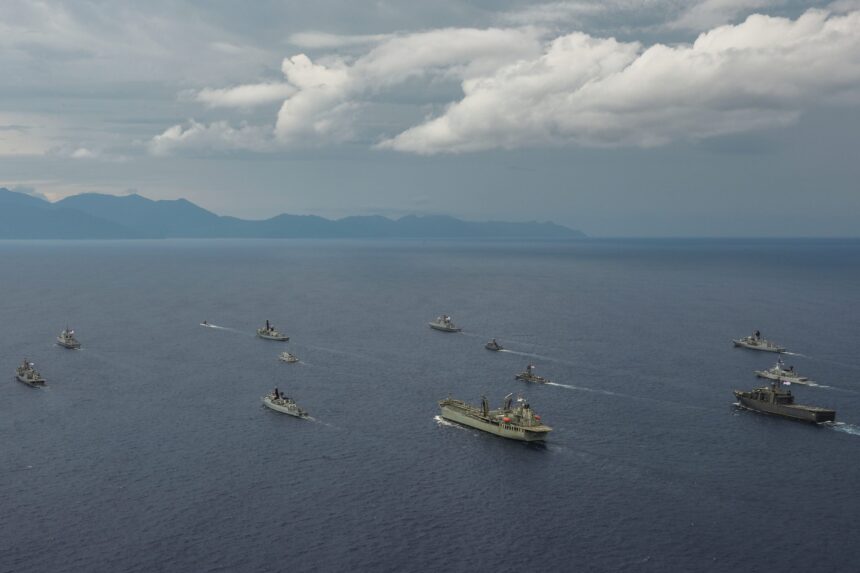Summary and Additional Remarks by Geopolist | Istanbul Center for Geopolitics:
Under the watchful eye of the United States, the South China Sea has emerged as a focal point of geopolitical conflict as China’s forceful measures collide with the Philippines’ attempts to maintain its sovereignty. The Association of Southeast Asian Nations’ (ASEAN) difficulties in taking a united stand further exacerbate this complex scenario.
China’s Strategic Approach
China has stepped up its actions in the South China Sea, using “grey zone” strategies to bolster its claims without resorting to open warfare, such as using coast guard ships and marine militia. By progressively gaining authority over contested regions, this tactic seeks to make them de facto Chinese possessions. Such actions put the resolve of surrounding countries and the larger international community to the test in addition to violating international maritime norms.
The Philippines’ Response
Active resistance has replaced appeasement as the Philippines’ policy under President Ferdinand Marcos Jr. Through cooperative exercises and improved defence alliances with the US, Australia, and Japan, Manila has bolstered its military capabilities and publicly denounced China’s actions in international fora. A strategic choice to balance China’s influence and safeguard national interests is reflected in this proactive approach.
ASEAN’s Role and Challenges
ASEAN has faced difficulties in formulating a cohesive policy regarding the South China Sea disputes. Prolonged negotiations over a Code of Conduct have yet to yield a binding agreement, highlighting the organization’s struggle to mediate effectively amid the competing interests of its member states and external pressures. This impasse raises concerns about ASEAN’s capacity to maintain regional stability and uphold international norms
Broader Implications
The South China Sea’s growing tensions are a microcosm of global geopolitical rivalry that goes beyond local conflicts. The Philippines’ and other countries’ reactions highlight the difficulties in preserving regional peace and sovereignty, while China’s actions call into question the current international order. The scenario evaluates the efficacy of multilateral diplomacy and the dedication of the international community to maintaining the rule of law in maritime conflicts.
In conclusion, the South China Sea stands as a pivotal domain where national interests, regional stability, and global power dynamics converge. The actions and strategies of the involved parties will significantly influence the future geopolitical landscape of the Indo-Pacific region.
Read more here.







